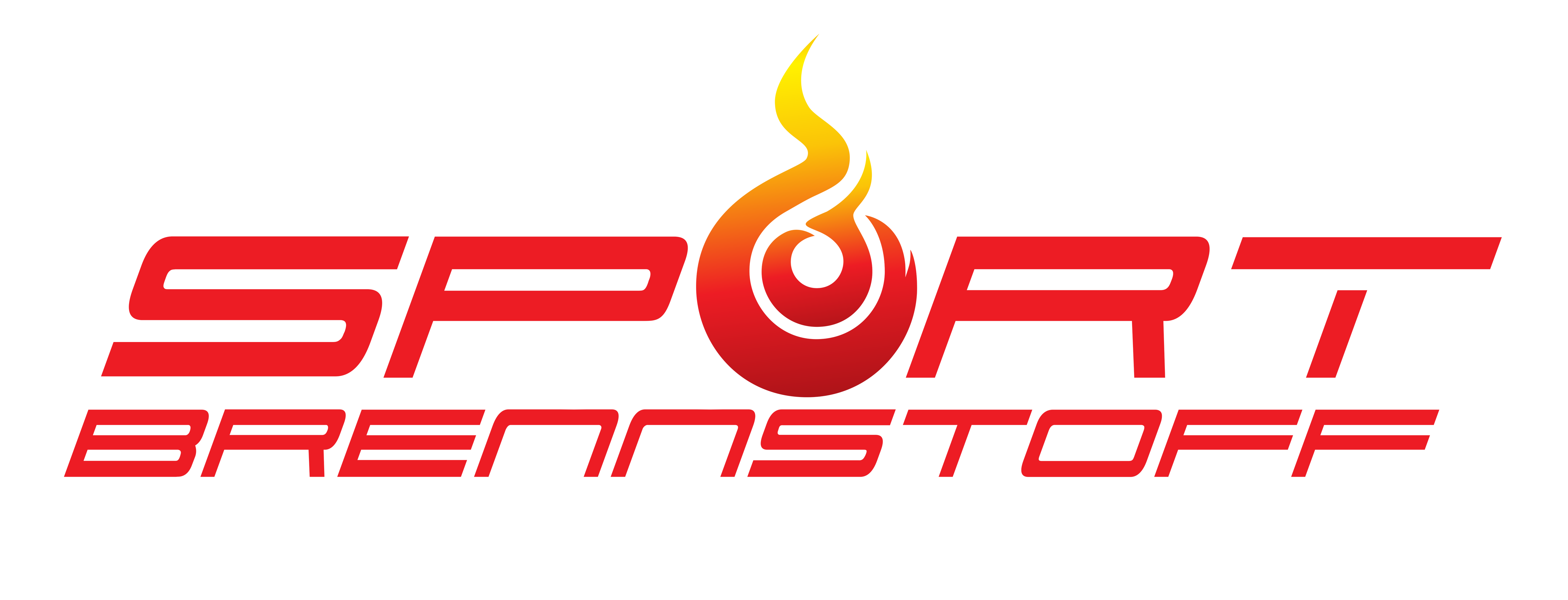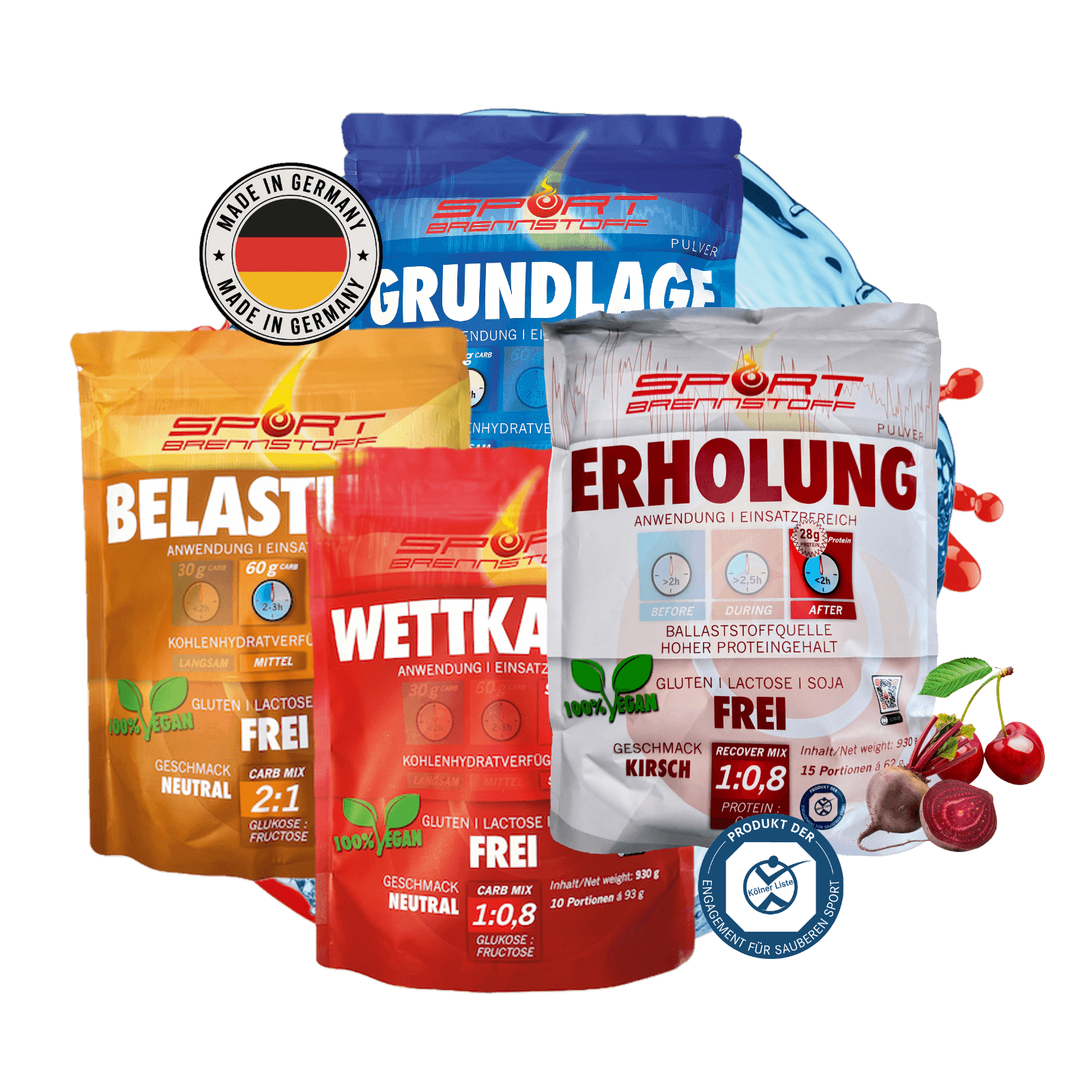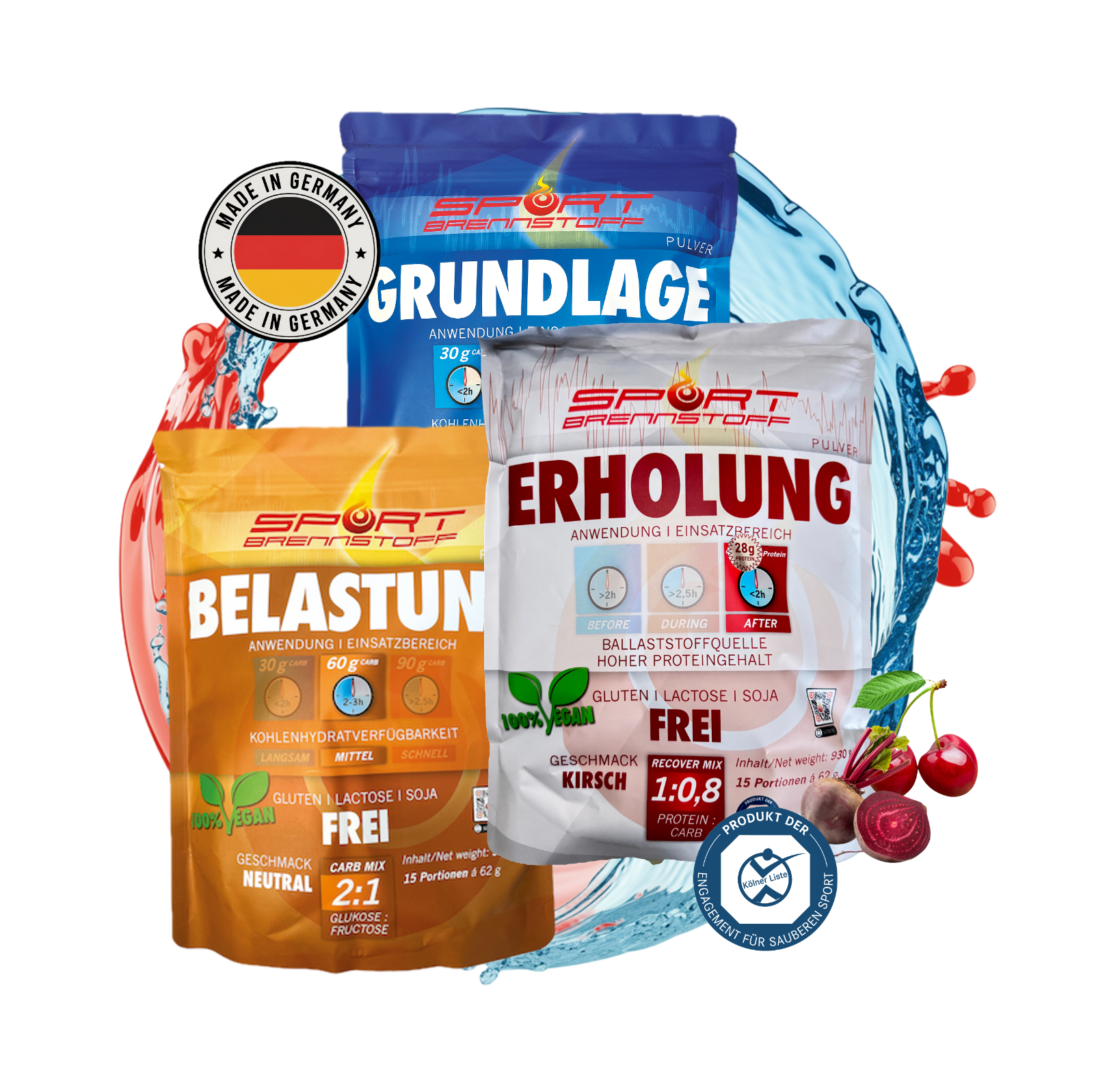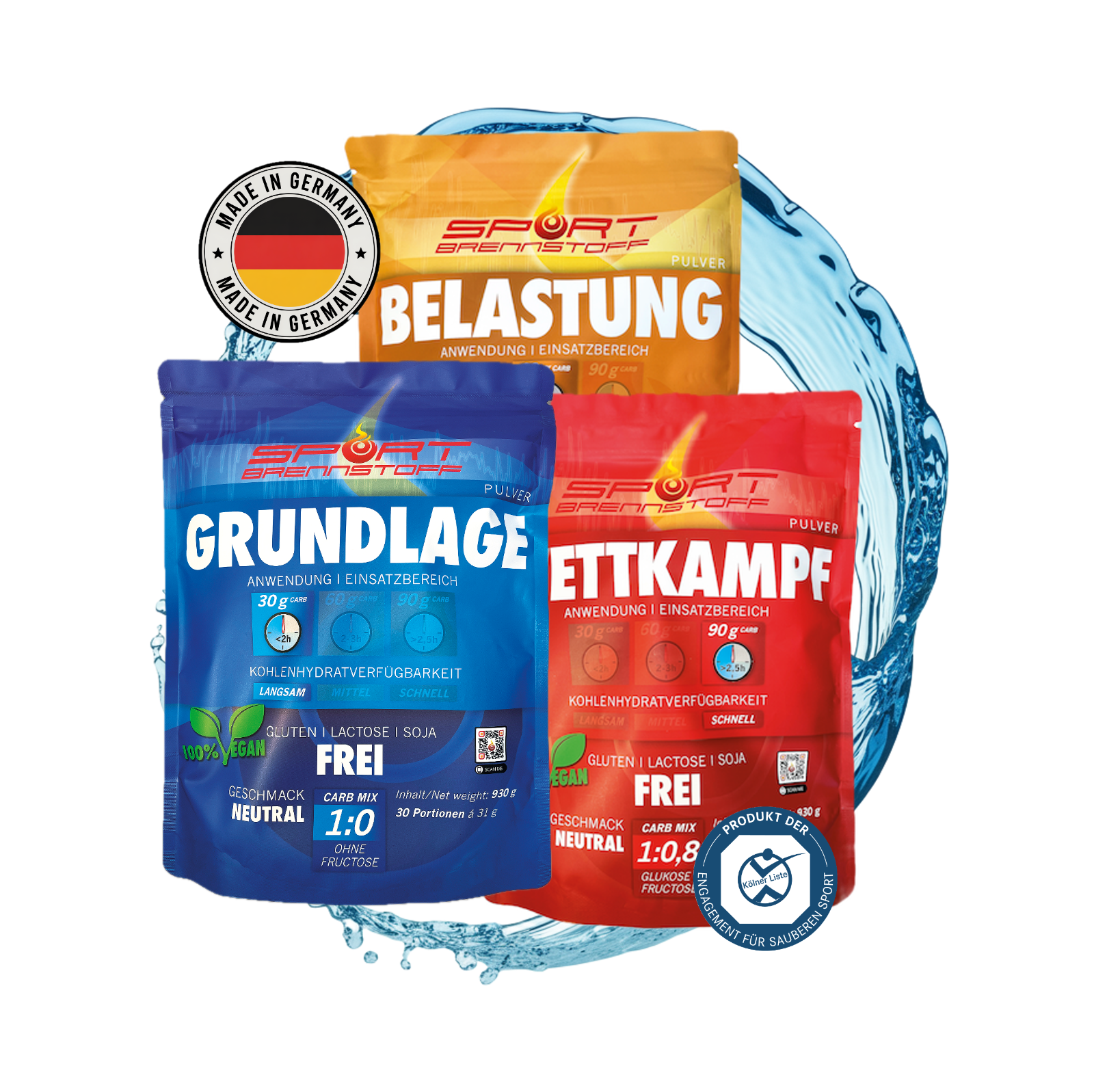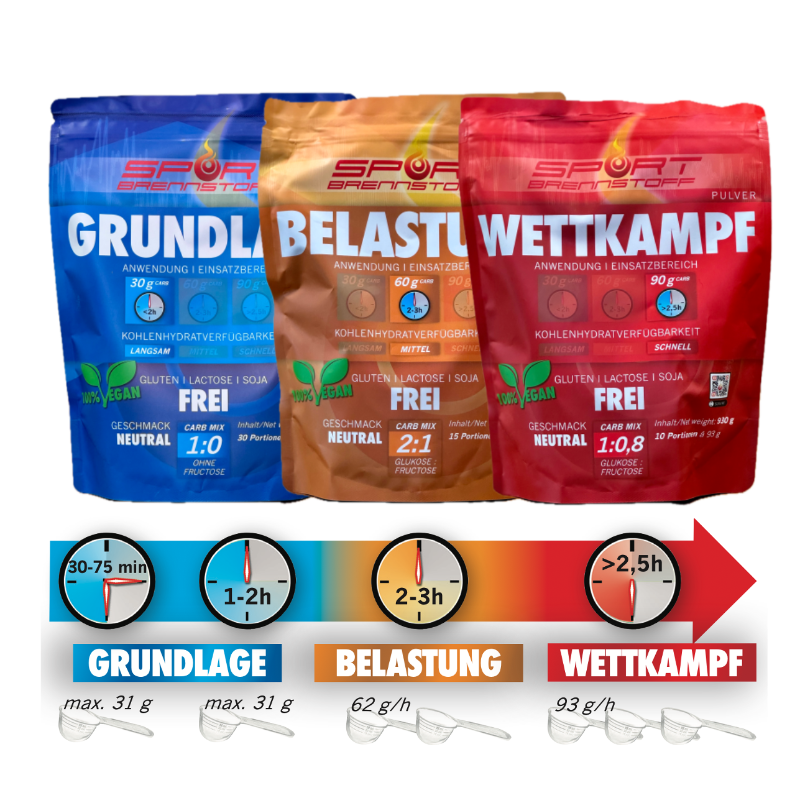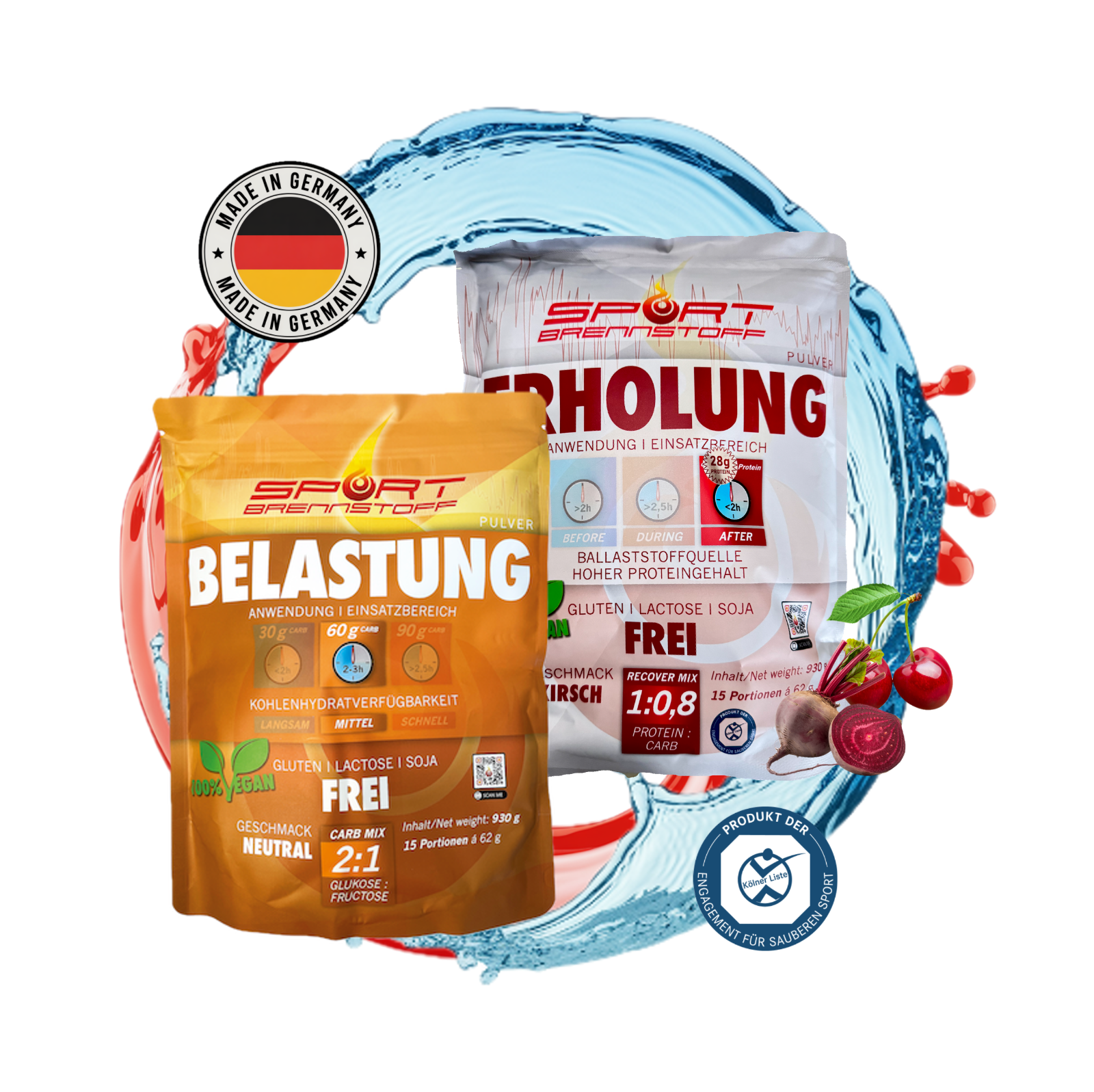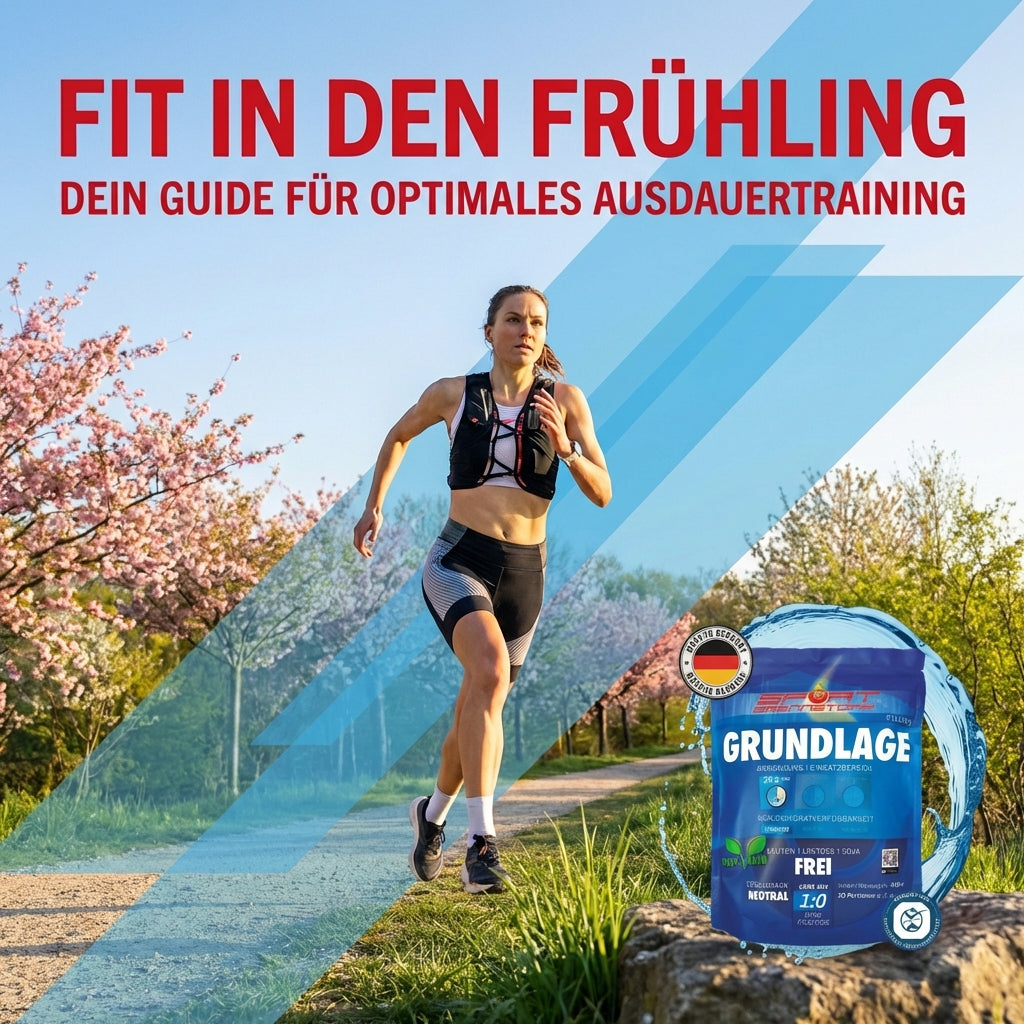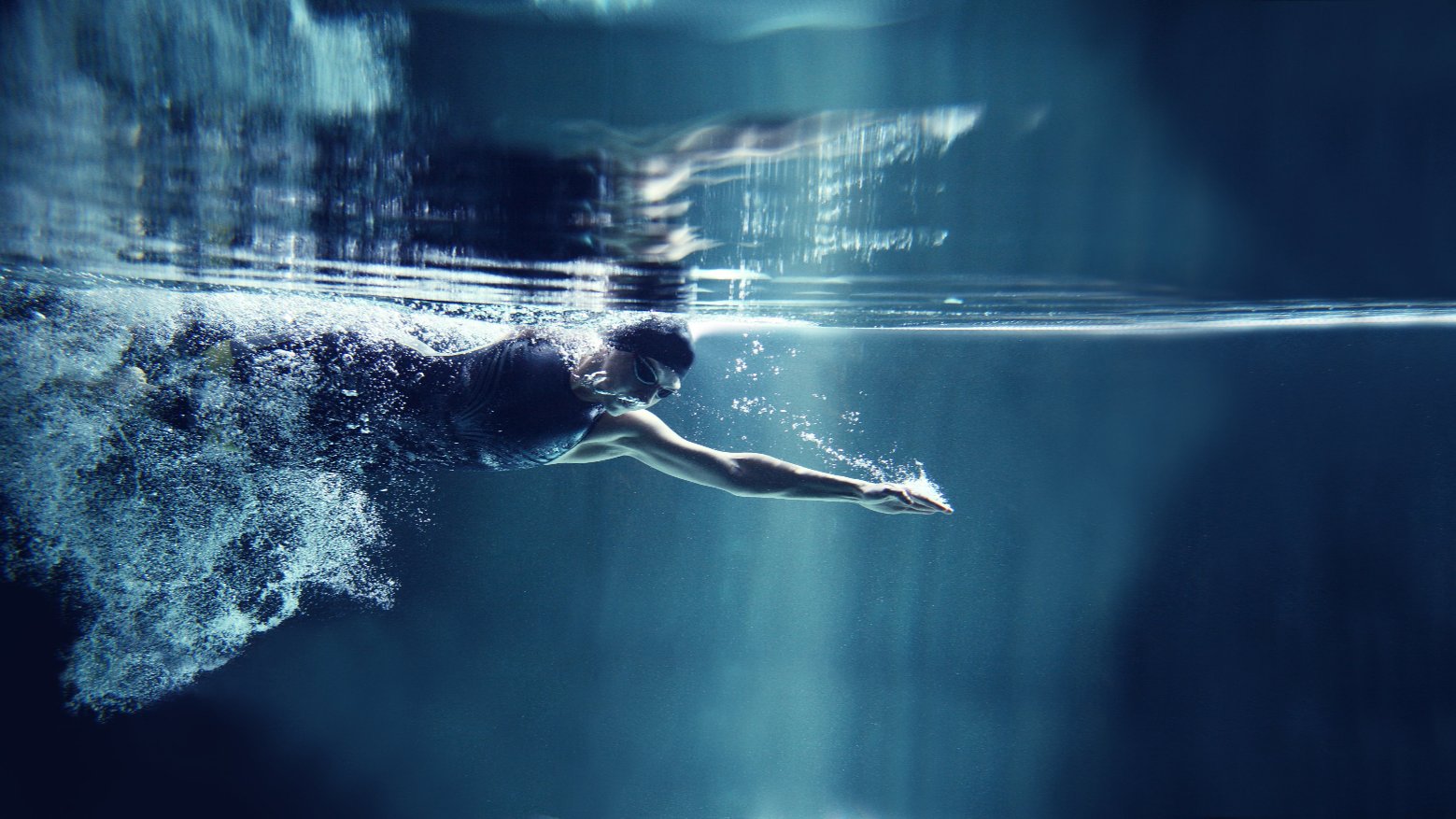
Sport-Specific Nutrition in Sports
Every sport is individual and challenging. A special discipline is nutrition before, during and after sport. A balanced diet is the basis, but not enough to use the strain for optimal performance development and to avoid injuries.
Swimming sport
Swimming places specific demands on sports nutrition, which must be tailored to the needs of the athletes. Here are some of the most important aspects to consider when it comes to the nutrition of swimmers:
- High energy demand
- Sufficient carbohydrate intake
- Protein intake
- Fluid intake
- Timing of food intake
- Individual needs
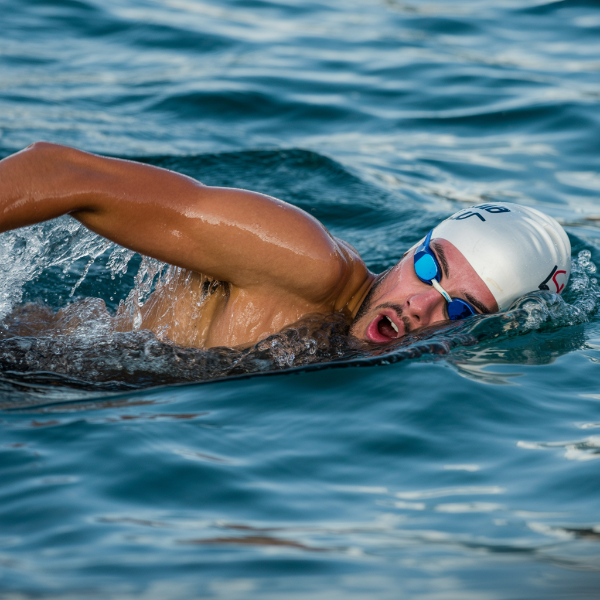
Sports nutrition in swimming
Introduction
Sports nutrition in swimming has some specific features tailored to the specific demands of this sport. Here are the most important aspects of nutrition before, during and after exercise:

Before the stress
🧆 High-carbohydrate diet: Swimmers should replenish their glycogen stores before training or competition. A high-carbohydrate diet with complex carbohydrates such as whole-grain products, green vegetables and sweet potatoes is recommended. DGE
___
🥪 Light meals: It is advisable to eat a light, easily digestible meal 2-3 hours before swimming to avoid digestive problems.
___
🍼 Hydration: 400 to 600 ml of fluid should be consumed 20 to 40 minutes before starting to swim. A carbohydrate-rich, isotonic drink is best.
___
It is important to consume the light meal before the race well in advance. This ensures that it has already been digested and that there are no food residues left in the stomach or small intestine, so as not to impair energy supply during the competition.

During the stress
🍼 Regular fluid intake: Swimmers should consume 150 to 250 ml of fluid every 10 to 20 minutes. This should also apply to triathletes in swimming training.
___
🧂 Electrolytes: For longer training sessions or competitions, the intake of electrolytes is important. It is recommended to consume 200-500 mg of sodium per 750 ml of water.
___
🍞 Carbohydrates: When exercising for more than 45 minutes, carbohydrates should be consumed to maintain energy stores.
___
Often, taking in food during the competition is not possible except during breaks or in long-distance swimming. Therefore, it is particularly important to go into the competition well-supplied and to consume an electrolyte-rich and carbohydrate-based drink in small sips shortly before the race.

After the stress
🍞 Rapid carbohydrate intake: Glycogen storage in the muscles is most effective in the first two hours after swimming. A carbohydrate-rich meal (approx. 400-500 kcal, 60-70% carbohydrate content) should be consumed as soon as possible.
___
🍳 Protein intake: 10-20 grams of protein should be consumed immediately after training or competition to support muscle repair and immune function.
___
🍼 Rehydration: Fluid loss should be compensated. Sports drinks or fruit juice spritzes in a 2:1 or 1:1 ratio are recommended. DGE
___
🧂 Electrolyte balance: Using drinks with electrolytes promotes optimal rehydration of the muscles.
___
The closer the protein and carbohydrate intake is to the end of a workout or competition, the better the effect. The open-window effect can already be reduced by protein intake, and glycogen stores fill up much faster than with later supplementation.
___
By following these nutritional strategies, swimmers can optimize their performance and accelerate recovery. It is important that each athlete considers their individual needs and adapts their diet accordingly.
___
DGE Position Paper: Carbohydrates in Sports Nutrition
DGE Position Paper: Fluid Management in Sports
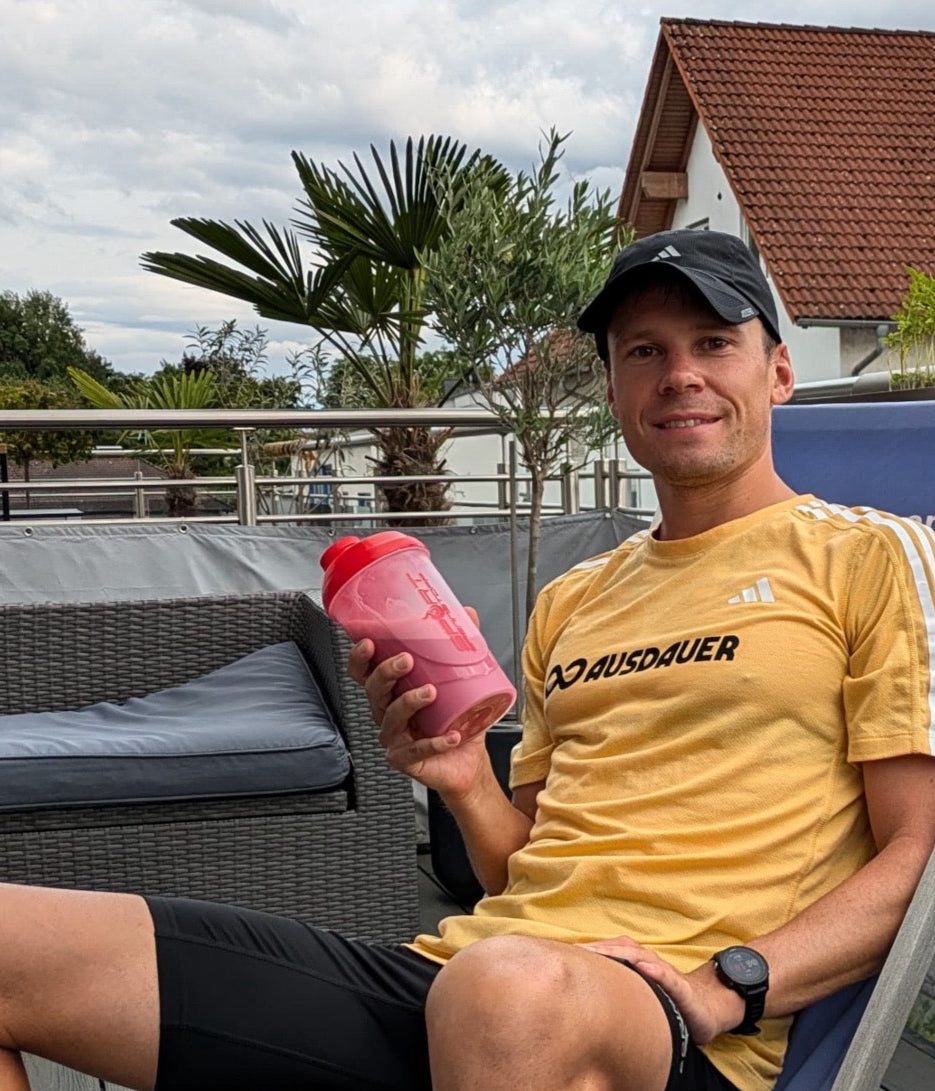
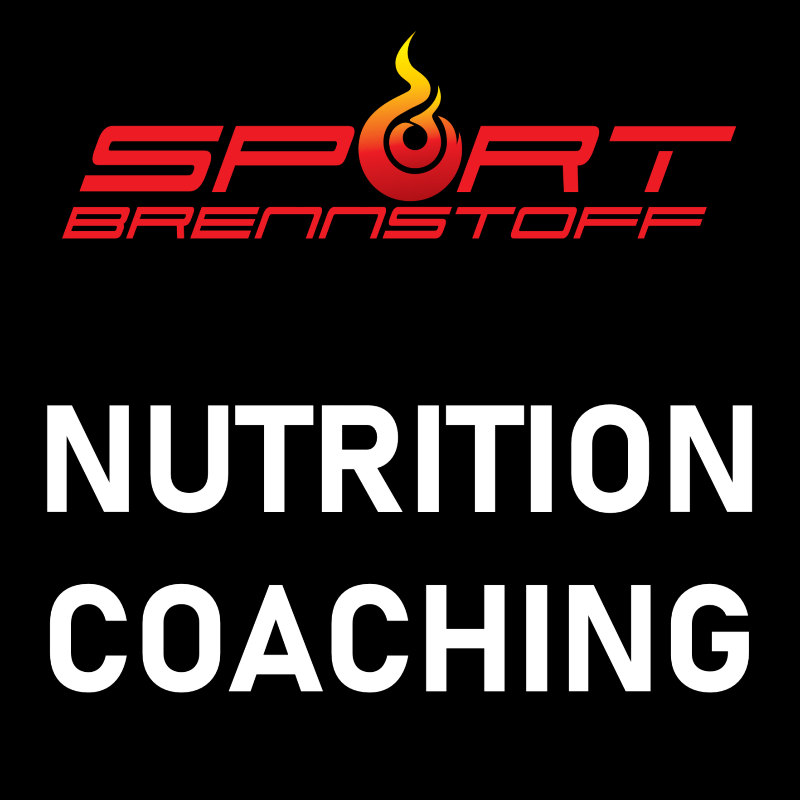
Nutrition Coaching at SportBrennstoff
Our nutrition coaching provides you with personalized nutritional support tailored to your individual goals, training routine, and lifestyle. Whether you want to improve performance, enhance recovery, regulate your weight healthily, or simply increase your energy levels – we will work together to develop a practical nutrition plan that is easy to implement. Through regular feedback sessions and close support, we ensure that you benefit sustainably from your nutrition and achieve your goals with motivation.
TO THE OFFERLet customers speak for us
from 262 reviewsDas meist-genutzte Produkt in unserem Haushalt, super zu dosieren und daher vielfältig einsetzbar. Schmeckt gut und ist super verträglich.
Perfekter Support für den Fettstoffwechsel, weil es keine Insulinspitzen verursacht. Optimale Versorgung für alle Grundlagen-Einheiten
Toller Geschmack und angenehme Konstistenz. Immer zuverlässig versorgt direkt nach dem Sport, TOP!
Ich empfinde das Produkt als top und geschmacklich auch sehr gut. Allerdings ist mir die Konsistenz bei der empfohlenen Dosis viel zu dick und reduziere die Menge.
Eines der besten Produkte die es auf dem Markt meiner Meinung nach gibt. Der Service zudem hervorragend.
Top - genau richtig und so wie‘s draufsteht! Geschmacklich neutral und nicht aufdringlich. Nicht süß und kein Kratzen im Hals.
Ich habe die Erholung wiederholt gekauft und finde es klasse!
Also wettkampfbasis verwendet - vor allem am Fahrrad als Versorgung - super vertragen und top versorgt.
Ich mag dass es sehr neutral schmeckt, und super für lange Einheiten ist! Alles drin was man braucht.
Funktioniert super, sogar derGroßvater hat es ausprobiert und ist sehr zufrieden mit dem Ergebnis des Produktes..
Gutes Produkt, bekömmlich und ohne Nebenwirkungen wie Unwohlsein, Völlegefühl
Ich habe seit Jahren Neurodermitis und habe so einige Sportgetränke ausprobiert und benutzt, aber Grundlage schmeckt mir nicht nur gut, sondern meine Haut verträgt es besonders gut, weil es Fruktose Frei ist. Keine roten Augen mehr die nach Stunden anfangen zu tränen.
Hervoragendes Kohlenhydrat für den Wettkampf. Ein wenig süß aber sehr magenverträglich. Habe vieles ausprobiert und mich auf Sportbrennstoff festgelegt.
Sehr wirksamsPulver,hab diesesProduk für lange Distanzen beim Ultratrail benutzt und war von der schnellen Kohlenhydrate Zufuhr sehr begeistert 👍
Klein, aber fein, gute Qualität
Stay in touch and well informed...
Become a member of the SportBrennstoff Club and receive an exclusive 10% discount on your first purchase.

Free shipping
from €60 in Germany and Austria

Hassle-free shopping
Satisfaction guarantee and transparent return conditions

Secure payments
Absolutely secure processing of all payments

Satisfied customers
Over 25,000 customers | ø 4.9 ⭐️ with +250 reviews
PRODUCT PORTFOLIO
INFORMATION
Environmentally conscious
Our packaging is environmentally friendly, and we participate in the Green Dot recycling system. Please support our efforts and recycle our packaging.
© 2025 SportBrennstoff®. All Rights Reserved
